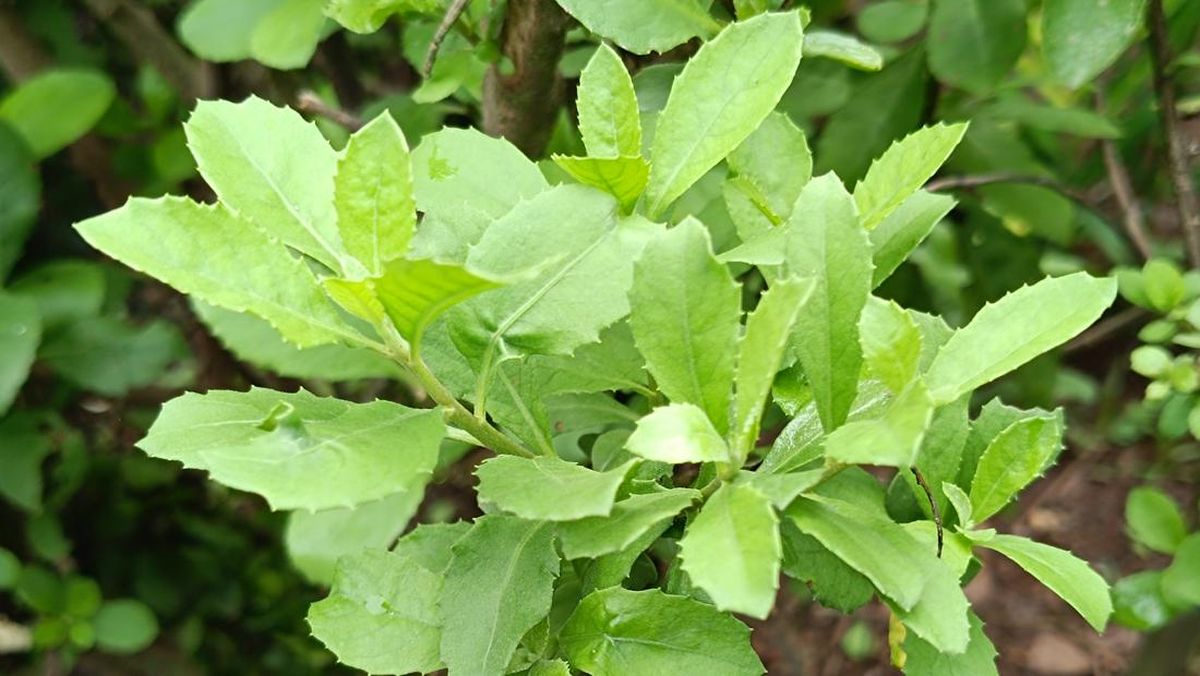By Sarah Knapton
September 18, 2025 — 11.30am
Chimpanzees “drink” the equivalent of several alcoholic shots each day, and it may help explain the human proclivity for boozing.
For the first time, scientists have measured the ethanol content of fruits found in chimp habitats in Africa, and it suggests that ape diets are inadvertently laced with alcohol.

Researchers found that chimps are inadvertently supping on naturally occurring alcohol.
Fruit produces alcohol as it ripens through natural fermentation by airborne yeasts, but it was unknown just how much was available to chimps day to day.
Biologists at the University of California, Berkeley, sampled 21 different types of fruit at chimpanzee habitats in Uganda and the Ivory Coast, and found alcohol content of around 0.26 per cent of weight.
Although it does not seem like a lot, scientists said it could be having an important cumulative effect, the equivalent of two alcoholic drinks a day, and possibly even higher if the chimps have a preference for boozier fruit.
“The chimps are eating 5 to 10 per cent of their body weight a day in ripe fruit, so even low concentrations yield a high daily total – a substantial dosage of alcohol,” said Robert Dudley, UC Berkeley professor of integrative biology.

The study also suggested slow lorises prefer fruit with a stronger alcohol content.Credit: Shutterstock
“If the chimps are randomly sampling ripe fruit, then that’s going to be their average consumption rate, independent of any preference for ethanol.
“But if they are preferring riper and/or more sugar-rich fruits, then this is a conservative lower limit for the likely rate of ethanol ingestion.”
Previous research has shown that when captive aye-ayes and slow lorises were offered nectar with varying percentages of alcohol, they finished off nectar with the highest alcohol content first.
Missing link to human drinking
While there is little to indicate that chimps are getting drunk from the fruit, experts say it could explain why humans have developed such a fondness for alcohol.
The common ancestors of humans and chimps were likely also exposed daily to alcohol from fermenting fruit.

Chimps and humans share the same enzyme that helps them to process alcohol.Credit: LaPresse
“Chimpanzees consume a similar amount of alcohol to what we might if we ate fermented food daily,” said UC Berkeley graduate student Aleksey Maro of the Department of Integrative Biology.
“Across all sites, male and female chimpanzees are consuming about 14 grams of pure ethanol per day in their diet, which is the equivalent to one standard American drink (slightly more than the standard Australian measure of 10 grams).
“When you adjust for body mass because chimps weigh about 40 kilos versus a typical human at 70 kilos, it goes up to nearly two drinks.
“Human attraction to alcohol probably arose from this dietary heritage of our common ancestor with chimpanzees.”
The ‘drunken monkey’ hypothesis
Previous studies of the human genome have shown that the ability to process alcohol dates from about 10 million years ago, about the same time when our ancestors were moving from the trees to the ground.
Loading
Great apes, such as chimps, who shared an ancestor with humans between eight and 10 million years ago, also possess the same enzyme – alcohol dehydrogenase – which helps them efficiently break down ethanol, like humans.
More than 10 years ago, Professor Dudley first suggested humans inherited their appetite for alcohol from primate ancestors who ate fermented fruit from the forest floor, a theory dubbed “the drunken monkey hypothesis”.
At the time, many scientists were sceptical, claiming that primates avoided ethanol in fruit.
But in recent years, several studies have shown apes do like fermented food, and may have evolved the ability to metabolise ethanol to allow them to eat windfall fruit that monkeys and other animals struggle to digest.
Professor Dudley believes apes may seek out the smell of ethanol because it signals that a fruit has a higher sugar content and will be more enjoyable to eat.
The most frequently consumed fruits at each site, a fig in Nigeria and the plum-like fruit of the evergreen Parinari excelsa in Ivory Coast, were found to have the highest alcohol content.
The new study was published in Science Advances.
The Telegraph, London
Most Viewed in World
Loading


















































